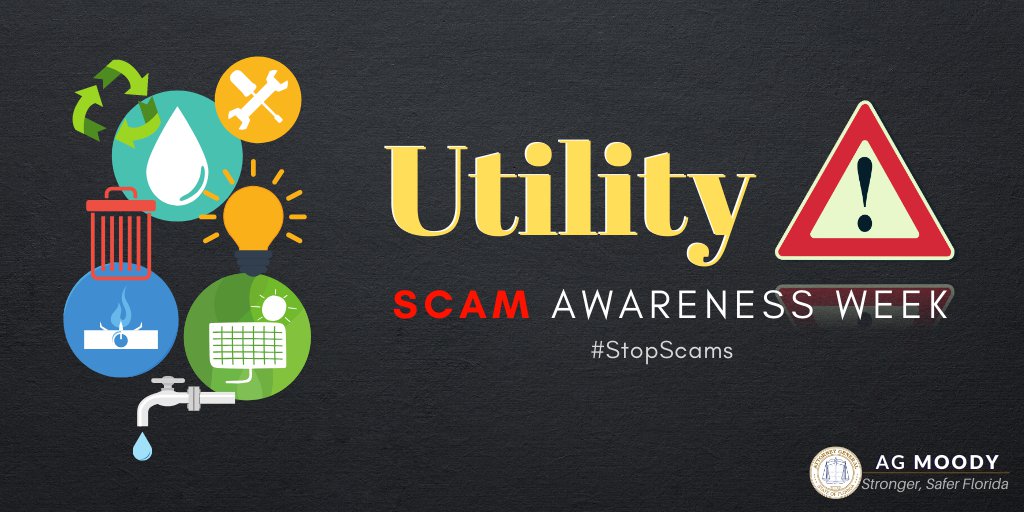Introduction Utility scams are fraudulent schemes where scammers pose as representatives from utility companies to trick consumers into paying for services or fees that are either unnecessary or completely fake. These scams can target anyone—homeowners, renters, and businesses alike—making it essential to stay vigilant and informed about how to recognize and prevent such scams. In this article, we’ll explore the most common utility scams and provide actionable steps to protect yourself from falling victim to these fraudulent activities.
What Are Utility Scams?
Utility scams typically involve a fraudster pretending to be a utility company employee, such as those from electric, gas, water, or telecommunications providers. These scammers use various tactics to create a sense of urgency, pressure victims into making quick decisions, and often demand payments in non-traditional ways (e.g., gift cards or cryptocurrency).
Common utility scam scenarios include:
- Impersonation Calls: Scammers call pretending to be from your utility company, threatening to disconnect your services unless immediate payment is made.
- Fake Billing: Fraudsters send fake bills that look like they come from your utility provider, attempting to collect payment for services you never received.
- Prize or Refund Scams: Scammers offer you a prize or claim you’re entitled to a refund for an overpayment, requesting payment upfront or sensitive personal information to “process” the reward.
- Fake Utility Inspections: Some scammers show up at your door, pretending to be utility workers, and ask to inspect your home for fraudulent purposes, such as gathering personal information or installing unnecessary devices.
Signs of a Utility Scam
It’s important to recognize the red flags of a utility scam before you’re caught off guard. Here are some common warning signs to look out for:
- Unexpected Contact: If you didn’t initiate the contact, be cautious. Utility companies typically don’t call or email unsolicited offers or threats.
- Threatening Language: Scammers often use high-pressure tactics such as threatening to shut off your service immediately or imposing heavy fines.
- Unusual Payment Methods: Requests for unusual payment methods such as gift cards, wire transfers, or cryptocurrency are major warning signs of a scam.
- Generic Communications: Scammers often use generic language in their emails or letters. Official utility companies will address you by name and provide specific details regarding your account.
- No Verification: If the person contacting you is unwilling or unable to provide a legitimate means of verifying their identity or authority, it’s likely a scam.
How to Avoid Falling for Utility Scams
Taking a few simple steps can go a long way in protecting yourself from utility scams. Here’s what you can do to stay safe:
1. Verify the Identity of the Caller or Visitor
- Ask for Identification: If someone claims to be a utility worker, ask for identification and the name of their company. Utility companies provide employees with ID badges.
- Call the Utility Company: If you receive a suspicious phone call or visit, don’t engage immediately. Hang up and call your utility company directly using a phone number from your bill or their official website to verify the claim.
- Check for Official Communication: Legitimate companies will provide you with official written communication. If you receive a phone call claiming to be urgent but haven’t received prior communication, it’s likely a scam.
2. Don’t Share Sensitive Information
- Guard Your Personal Information: Never provide your personal or payment information over the phone or via email unless you’re sure about the identity of the person you’re dealing with.
- Avoid Giving Payment Details: Scammers often ask for payment over the phone. Reputable utility companies typically offer multiple payment methods, including online portals and physical locations.
3. Review Your Utility Bills Carefully
- Check for Discrepancies: Regularly review your utility bills to spot any unusual charges. If something doesn’t seem right, contact your utility provider to confirm the charges.
- Understand Your Billing Cycle: Make sure you know when your utility payments are due to prevent scams involving fake late payment notices.
4. Report Suspicious Activity
- Contact Your Utility Provider: If you suspect a scam or if someone is trying to trick you, contact your utility company immediately. They will investigate and guide you on what steps to take next.
- Report to Authorities: You can also report scams to local consumer protection agencies or the Federal Trade Commission (FTC) to help protect others from falling victim to similar scams.
5. Educate Yourself and Others
- Stay Informed: Regularly educate yourself on common scams and fraud prevention measures. Utility companies often have resources to help consumers identify and avoid scams.
- Share Information: Inform friends, family, and colleagues about the risks of utility scams, especially those who may be less familiar with online threats, such as seniors.
6. Use Technology to Stay Safe
- Call Blocking Services: Consider using call-blocking apps or services to reduce unsolicited calls, especially if you receive multiple scam-related calls.
- Online Account Management: Manage your utility account online and sign up for alerts from your utility company. Many providers send notifications about billing changes or service interruptions, allowing you to spot potential scams early.
Conclusion
Utility scams are a growing concern, but with the right knowledge and proactive measures, you can protect yourself from becoming a victim. Always verify the identity of anyone claiming to be from your utility company, watch out for red flags, and be cautious with personal information. Stay informed, and don’t hesitate to reach out to your utility provider if you suspect something is off. By staying vigilant and educating others, you can help protect your home, finances, and community from these fraudulent schemes.
Call to Action Stay informed and help others by sharing this article on social media. Be vigilant and protect yourself from utility scams today!














